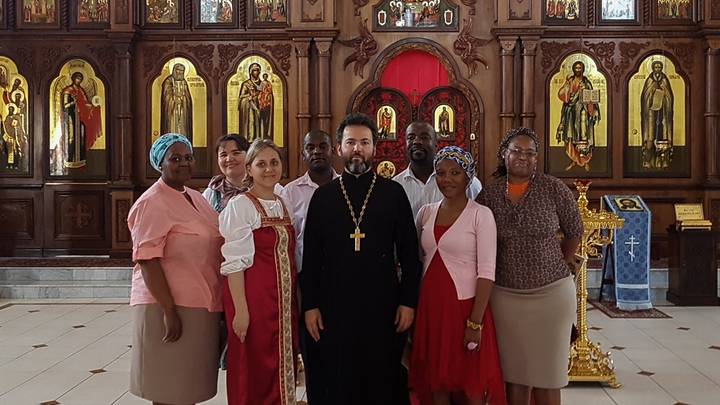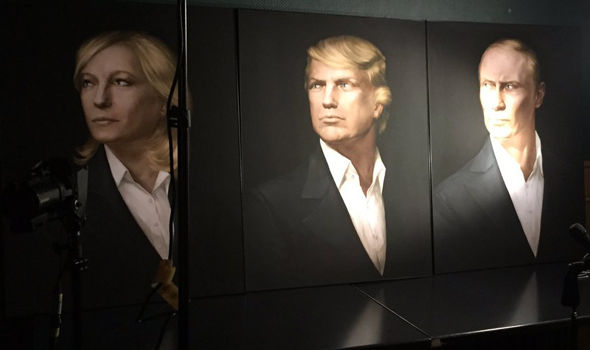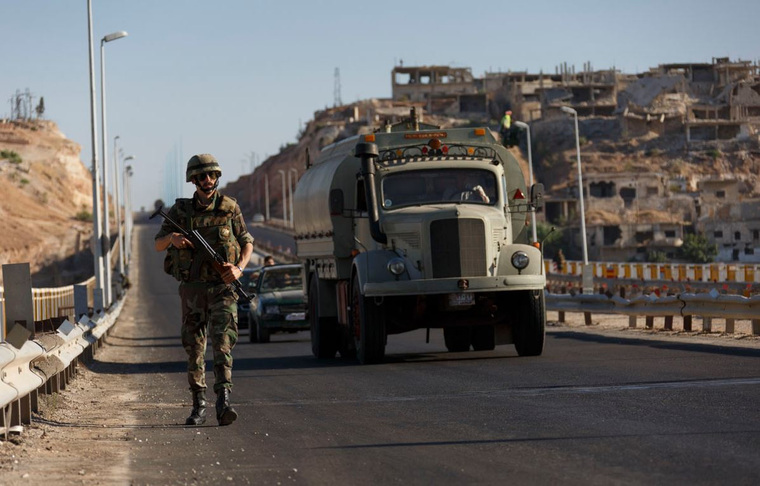Moscow has now dispatched another of what it calls “a private military company” to fight in Syria, a reflection of its desire to avoid having regular army units there, its unwillingness to rely on the Wagner group alone, and its interest in having a force that will do some of its dirty work on a deniable basis.
The new group, called “Patriot,” the independent Moscow television channel Dozhd says
, is mentioned alongside an appeal to the authorities signed by retired General Leonid Ivashov, Vladimir Petrov of the Honor and Motherland organization, and Yevgeny Shabayev of the All-Russian Officers Assembly
who confirm its existence.
In their appeal, the three mention that it is long past time to legalize the status of military groups like Wagner and Patriot. Under existing Russian law, such groups are illegal because they are mercenaries, something the authorities use despite a longstanding Russian legal prohibition against doing so.
According to Shabayev, most of those in these groups have served in the regular military. Ivashov for his apart adds that the fighters in such organizations are assisted by specialists from the Main Intelligence Directorate of the General Staff (GRU), military lawyers, and special operations forces.
Those in Patriot are paid more than those in Wagner, the three say, with salaries varying “depending on specialty from 400,000 to one million rubles a month ($6,600 to $16,000 US dollars a month). Most serve in its ranks only a month or two. The commanders get even more, both directly and as a cut of their men’s pay.
According to Dozhd
’s sources, one result of the appearance of the Patriot group is that is has set up competition with the Wagner organization, with the two vying for the same contracts and thus at least potentially reducing the costs for the Russian government.
The authors of the appeal add that Patriot is not the only new group, there are “other new groups which have entered “this market,” although they say that they “do not know their exact names.” They are being used in Libya, Yemen, Sudan, and Brunei. Now there is an entire complex of consultations about African countries as well,” Shabayev says.
One of these nameless groups now guards the construction site of a Russian bank in Burundi, according to the television channel’s other sources who say that it coordinates its work with the foreign ministry, the Military-Space Forces of the Russian government and, of course, the FSB.
Read More:
- New footage shows Russian PMC Wagner involved in crucial 2015 Debaltseve battle in Ukraine
- From Donbas to Syria: investigation reveals Ukrainians fighting in Russian PMC Wagner
- Identical statues to Russia’s “Wagner” mercenaries erected in Syria, occupied Donbas
- Moscow preparing to replace its forces in Donbas with ‘private’ military ones, Kyiv analyst suggests
- Ukraine names over 150 mercenaries from “Putin’s private army” fighting in Ukraine and Syria
- Wagner mercenaries: what we know about Putin’s private army in Donbas
- Moscow’s private military companies continue to be a serious threat in Ukraine




